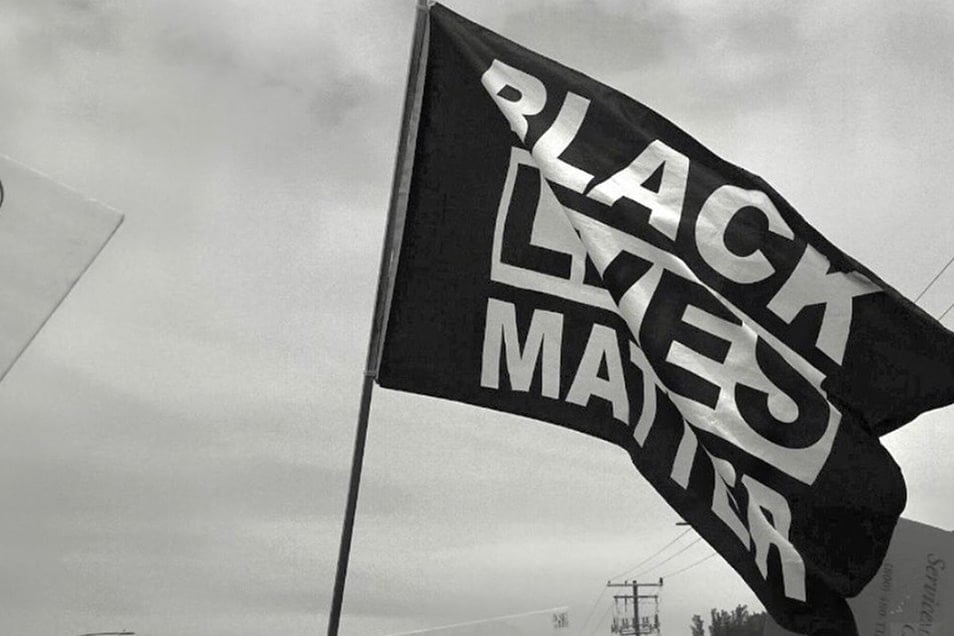
The devastating and unjust killings of BIPOC has reached a boiling point for many this week. After the tragic murder of George Floyd who was pinned to the ground by police while one knelt on his neck for over 8 minutes until his body went limp and the others stood by. Floyd's death followed a series of similar killings this year. In March, Breonna Taylor was shot and killed in the middle of the night in her home by police, and in February, Ahmaud Arbery was gunned down while jogging by two white men in a pickup truck. These three, public and tragic deaths add to the list of the countless lives taken as a result of racism.
While people come together across the globe to show solidarity and support for the Black Lives Matter movement and demand justice for Floyd and Taylor (Ahmaud’s killers were arrested in early May), a lot of us are left wondering how to help. We’ve covered who to follow, and tangible ways to be anti-racist, but wanted to explore some immediate and long term, action-based steps to ensure the unjust killing of BIPOC is ended for those reading from America, for American citizens living elsewhere, and anyone else around the globe who wishes to join the fight.
Take Local Action
While the current US president’s behaviour inspires exactly what we are all fighting against, it is important to recognise that fighting to have a government that prioritises anti-racist initiatives is extremely important. Those who can change the course in the interim are members of the community - by voting for their elected officials on a local level.
Mayors and county executives are the people who appoint most police chiefs and negotiate police unions, while district attorneys and attorney generals can hold people accountable when things go wrong. Voting for the right people can have a huge impact on reforming police departments at a local level. Campaign Zero has an easy to read, comprehensive list of urgent policy solutions that are informed by data, research and human rights principles. If you are not a US citizen and cannot use these policy solutions to inform your local voting, consider donating here. You can also watch this TED talk by Philip Atiba Goff, director of the Center for Policing Equity to understand how fighting racism and police reform go hand-in-hand.
Donate Where Possible
Donating is a great way to take action and show support for organisations who are putting in the work.
To support bail for protestors in the US should they be arrested, you can donate to the Nationwide Bail Fund here.
Color of Change work to hold police and officials accountable while leading campaigns and initiatives to build power, equity and justice for black communities. You can donate, learn more, and participate in Color of Change campaigns, here.
Communities United Against Police Brutality provides assistance to families dealing with the effects of police brutality. They offer medical, legal and psychological referrals to resources and have a 24-hour crisis line (612-874-STOP) to report instances of abuse. CUAPB is a volunteer-run organisation. You can donate to support their work here.
The ACLU provides legal services for people with civil rights complaints as well as providing a range of services to support racial justice. You can donate to the ACLU here.
Demand Immediate Justice
Grassroots Law Project has provided numbers that anyone in the world can call (provided you dial your area code) to demand justice and accountability for the killings of George Floyd and Breonna Taylor. Shaun King has prepared hotlines to talk people through what to say and do when making these calls. We have listed the numbers below.
Justice for George Floyd
Call: 612-324-4499
Justice for Breonna Taylor
Call: 502-735-1784
Listen, Learn and Act
During this heartbreaking and traumatic time, please remember to listen carefully to what BIPOC need from white allies by reading resources available to you instead of asking directly. Strategise how you plan to continue anti-racism work daily, educate yourself accordingly by taking responsibility to do so, and amplify the voices of BIPOC who are educating others on these issues. Some of these people are @ljeomaoluo, @shaunking, @privtoprog, @rachel.cargle, @ibramxk, @myishathill, @laylafsaad, and @iamrachelricketts.



